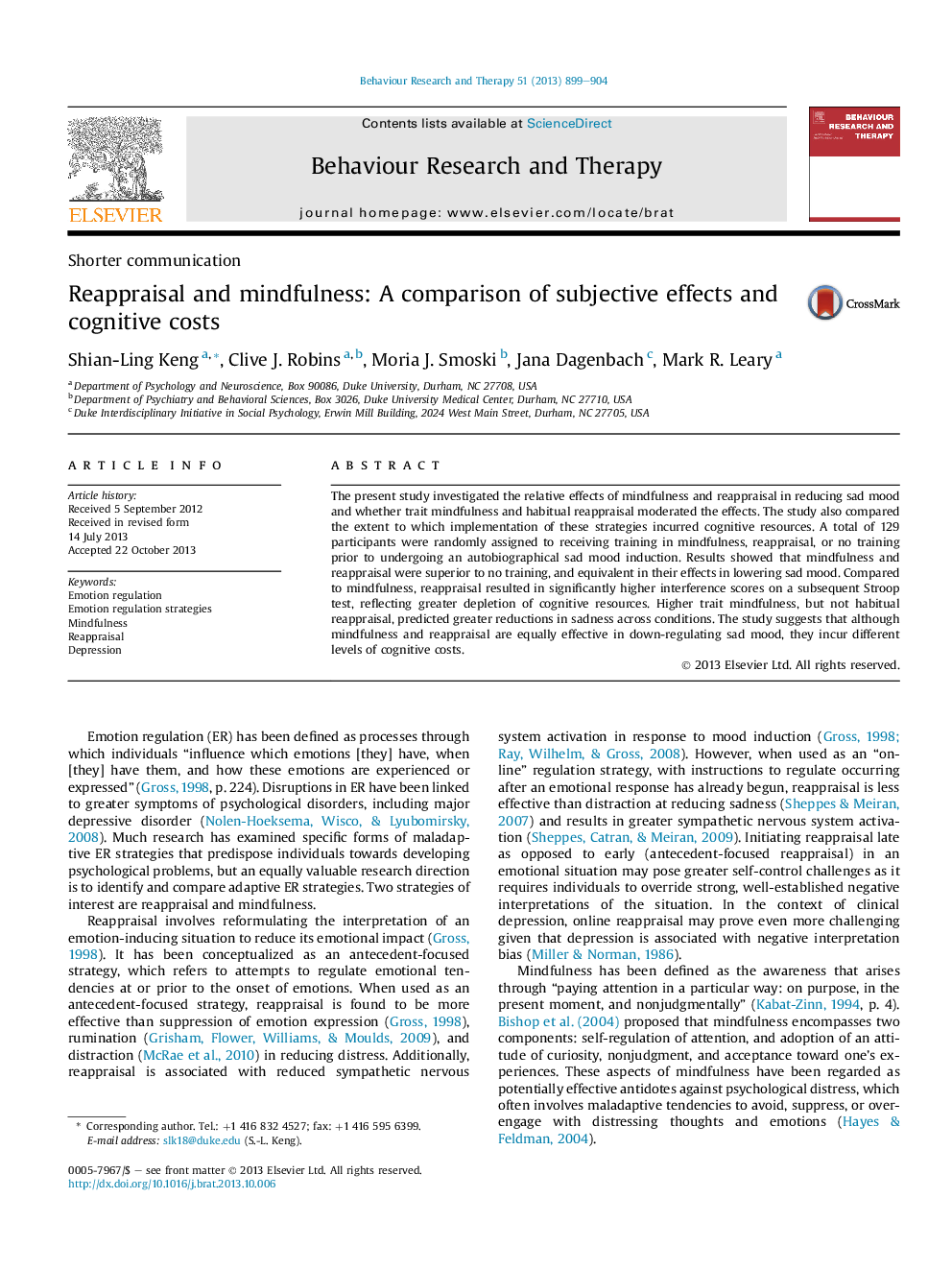| Article ID | Journal | Published Year | Pages | File Type |
|---|---|---|---|---|
| 10444443 | Behaviour Research and Therapy | 2013 | 6 Pages |
Abstract
The present study investigated the relative effects of mindfulness and reappraisal in reducing sad mood and whether trait mindfulness and habitual reappraisal moderated the effects. The study also compared the extent to which implementation of these strategies incurred cognitive resources. A total of 129 participants were randomly assigned to receiving training in mindfulness, reappraisal, or no training prior to undergoing an autobiographical sad mood induction. Results showed that mindfulness and reappraisal were superior to no training, and equivalent in their effects in lowering sad mood. Compared to mindfulness, reappraisal resulted in significantly higher interference scores on a subsequent Stroop test, reflecting greater depletion of cognitive resources. Higher trait mindfulness, but not habitual reappraisal, predicted greater reductions in sadness across conditions. The study suggests that although mindfulness and reappraisal are equally effective in down-regulating sad mood, they incur different levels of cognitive costs.
Related Topics
Health Sciences
Medicine and Dentistry
Psychiatry and Mental Health
Authors
Shian-Ling Keng, Clive J. Robins, Moria J. Smoski, Jana Dagenbach, Mark R. Leary,
